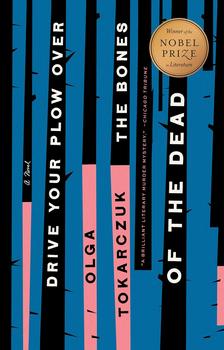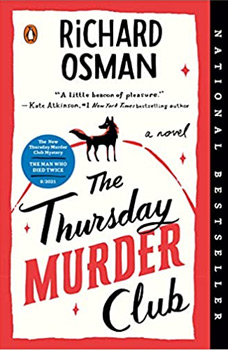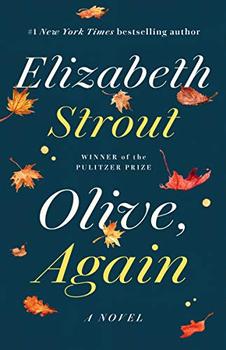Summary | Excerpt | Reviews | Beyond the book | Read-Alikes | Genres & Themes | Author Bio

A subversive feminist noir mystery set in a remote Polish village, Drive Your Plow Over the Bones of the Dead both dazzles and defies categorization. Olga Tokarczuk's seventh novel (her fourth to be translated into English) follows Janina Duszejko, an elderly woman living as a recluse on the outskirts of a Polish town close to the Czech border, who spends her days reading horoscopes and translating the poetry of William Blake. But it's a far cry from an idyllic life for Janina, whose beloved dogs have gone missing and whose neighbors keep mysteriously turning up dead.
The intelligent and eccentric Janina immediately recalls Agatha Christie's Miss Marple, but to call this one a mystery novel would be reductive. Janina is an unlikely heroine not only for her age, but because of the sundry ways in which she refuses to submit to societal standards; she's a vegetarian within a hunting community, she's outspoken about animal rights, she's a firm and un-ironic believer in astrology. As the murders begin to escalate, Janina becomes adamant that she knows who the culprit is, but she succeeds only in isolating herself further from those in her town who already doubt her sanity. The commentary on how the elderly – women in particular – are viewed with disdain and ridicule is the novel's focus, rather than the whodunit.
However, Tokarczuk's advocacy for the elderly isn't the only thematic thread that leaves a strong impression. Against the stark, dreary and frigid backdrop, an atmosphere rendered to perfection, the novel's driving conflict isn't so much with the climate and landscape, as one might expect, but with society at large. Tokarczuk deftly weaves together commentary on the limitations of the body, animal welfare, justice and the nature of violence – which all condense into a fundamental question about fate vs. free will, echoing back to Janina's obsession with the stars.
"I think we all feel great ambivalence at the sight of our own Horoscope. On the one hand we're proud to see that the sky is imprinted on our individual life, like a postmark with a date stamped on a letter – this makes it distinct, one of a kind. But at the same time it's a form of imprisonment in space, like a tattooed prison number. There's no escaping it. I cannot be someone other than I am. How awful. We'd prefer to think we're free, able to reinvent ourselves whenever we choose. This connection with something as great and monumental as the sky makes us feel uncomfortable. We'd rather be small, and then our petty little sins would be forgivable."
Translated from the Polish by Antonia Lloyd-Jones, Drive Your Plow Over the Bones of the Dead is stylistically striking. With a pseudo-biblical flair, improper nouns are capitalized seemingly at random (a quirk that isn't consistent with Polish orthography, indicating this was an intentional choice made by Tokarczuk in the original language). Early in the novel Janina meditates on the nature of names: she often finds them ill-fitting and chooses to refer to people by a prominent characteristic instead. Her neighbors therefore have names like Oddball and Big Foot, but she also talks of Horoscopes and her Ailments, imbuing these words with an almost equal weight as that with which she considers her fellow men. What makes human life so special? This is the question that propels the novel forward, one that will continue to haunt its readers long after they finish.
![]() This review was originally published in The BookBrowse Review in August 2019, and has been updated for the
November 2020 edition.
Click here to go to this issue.
This review was originally published in The BookBrowse Review in August 2019, and has been updated for the
November 2020 edition.
Click here to go to this issue.

If you liked Drive Your Plow Over the Bones of the Dead, try these:

by Richard Osman
Published 2021
Four septuagenarians with a few tricks up their sleeves
A female cop with her first big case
A brutal murder
Welcome to...
THE THURSDAY MURDER CLUB

by Elizabeth Strout
Published 2020
Winner of the 2019 BookBrowse Fiction Award
Prickly, wry, resistant to change yet ruthlessly honest and deeply empathetic, Olive Kitteridge is "a compelling life force" (San Francisco Chronicle).
Your guide toexceptional books
BookBrowse seeks out and recommends the best in contemporary fiction and nonfiction—books that not only engage and entertain but also deepen our understanding of ourselves and the world around us.